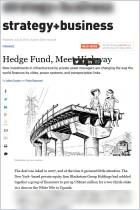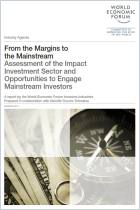Melden Sie sich bei getAbstract an, um die Zusammenfassung zu erhalten.

Melden Sie sich bei getAbstract an, um die Zusammenfassung zu erhalten.
Andrew Claerhout, Tawfik Hammoud, Michael Brigl and Jared Haddon
Infrastructure’s Future Looks a Lot Like Private Equity
The Future of Infrastructure Investing
Boston Consulting Group, 2018
Was ist drin?
Investing in infrastructure was once a passive affair. Now, it’s more like private equity.
Recommendation
Infrastructure investing has historically been a relatively boring affair that passive investors could count on to produce attractive, reliable returns. But as government funding dries up and the profitability of traditional projects dwindles, investors are migrating toward toward new types and new ways of investing. This succinct report from a team of Boston Consulting Group professionals provides insights that will enable investors, fund managers and regulators to keep pace with the seismic changes in this investment sphere.
Summary
About the Authors
Andrew Claerhout et al. are professionals with the Boston Consulting Group.








































Comment on this summary